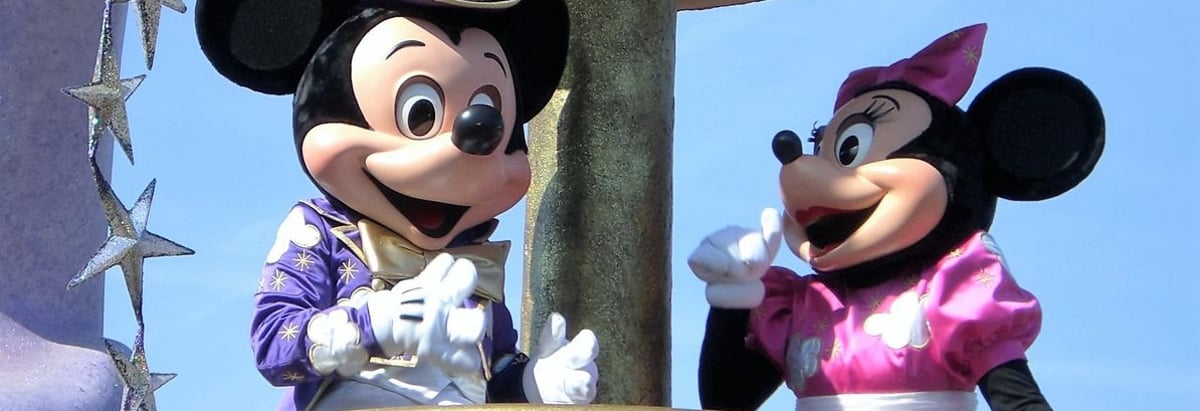Stock Analysis
- United States
- /
- Entertainment
- /
- NYSE:DIS
Can Mixed Fundamentals Have A Negative Impact on The Walt Disney Company (NYSE:DIS) Current Share Price Momentum?

Walt Disney's (NYSE:DIS) stock is up by a considerable 19% over the past three months. But the company's key financial indicators appear to be differing across the board and that makes us question whether or not the company's current share price momentum can be maintained. Specifically, we decided to study Walt Disney's ROE in this article.
Return on Equity or ROE is a test of how effectively a company is growing its value and managing investors’ money. Simply put, it is used to assess the profitability of a company in relation to its equity capital.
Check out our latest analysis for Walt Disney
How Is ROE Calculated?
Return on equity can be calculated by using the formula:
Return on Equity = Net Profit (from continuing operations) ÷ Shareholders' Equity
So, based on the above formula, the ROE for Walt Disney is:
5.5% = US$5.8b ÷ US$106b (Based on the trailing twelve months to September 2024).
The 'return' is the profit over the last twelve months. That means that for every $1 worth of shareholders' equity, the company generated $0.05 in profit.
What Is The Relationship Between ROE And Earnings Growth?
We have already established that ROE serves as an efficient profit-generating gauge for a company's future earnings. Based on how much of its profits the company chooses to reinvest or "retain", we are then able to evaluate a company's future ability to generate profits. Assuming all else is equal, companies that have both a higher return on equity and higher profit retention are usually the ones that have a higher growth rate when compared to companies that don't have the same features.
Walt Disney's Earnings Growth And 5.5% ROE
On the face of it, Walt Disney's ROE is not much to talk about. A quick further study shows that the company's ROE doesn't compare favorably to the industry average of 14% either. Accordingly, Walt Disney's low net income growth of 2.1% over the past five years can possibly be explained by the low ROE amongst other factors.
As a next step, we compared Walt Disney's net income growth with the industry and were disappointed to see that the company's growth is lower than the industry average growth of 22% in the same period.
Earnings growth is a huge factor in stock valuation. What investors need to determine next is if the expected earnings growth, or the lack of it, is already built into the share price. By doing so, they will have an idea if the stock is headed into clear blue waters or if swampy waters await. Is DIS fairly valued? This infographic on the company's intrinsic value has everything you need to know.
Is Walt Disney Efficiently Re-investing Its Profits?
Despite having a moderate three-year median payout ratio of 26% (implying that the company retains the remaining 74% of its income), Walt Disney's earnings growth was quite low. Therefore, there might be some other reasons to explain the lack in that respect. For example, the business could be in decline.
In addition, Walt Disney has been paying dividends over a period of at least ten years suggesting that keeping up dividend payments is way more important to the management even if it comes at the cost of business growth. Our latest analyst data shows that the future payout ratio of the company is expected to drop to 18% over the next three years. As a result, the expected drop in Walt Disney's payout ratio explains the anticipated rise in the company's future ROE to 11%, over the same period.
Conclusion
In total, we're a bit ambivalent about Walt Disney's performance. While the company does have a high rate of reinvestment, the low ROE means that all that reinvestment is not reaping any benefit to its investors, and moreover, its having a negative impact on the earnings growth. Having said that, looking at the current analyst estimates, we found that the company's earnings are expected to gain momentum. To know more about the latest analysts predictions for the company, check out this visualization of analyst forecasts for the company.
Valuation is complex, but we're here to simplify it.
Discover if Walt Disney might be undervalued or overvalued with our detailed analysis, featuring fair value estimates, potential risks, dividends, insider trades, and its financial condition.
Access Free AnalysisHave feedback on this article? Concerned about the content? Get in touch with us directly. Alternatively, email editorial-team (at) simplywallst.com.
This article by Simply Wall St is general in nature. We provide commentary based on historical data and analyst forecasts only using an unbiased methodology and our articles are not intended to be financial advice. It does not constitute a recommendation to buy or sell any stock, and does not take account of your objectives, or your financial situation. We aim to bring you long-term focused analysis driven by fundamental data. Note that our analysis may not factor in the latest price-sensitive company announcements or qualitative material. Simply Wall St has no position in any stocks mentioned.
About NYSE:DIS
Walt Disney
Operates as an entertainment company worldwide.

